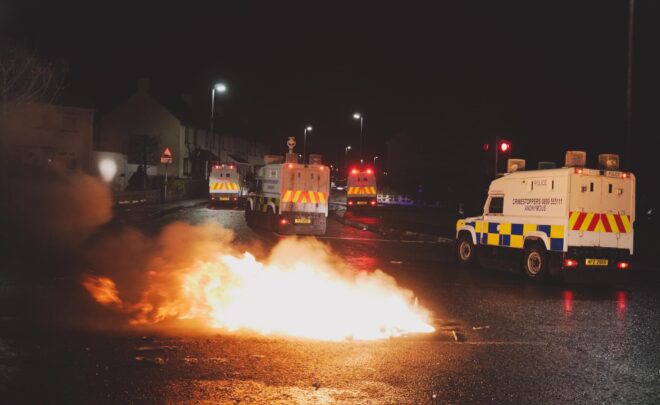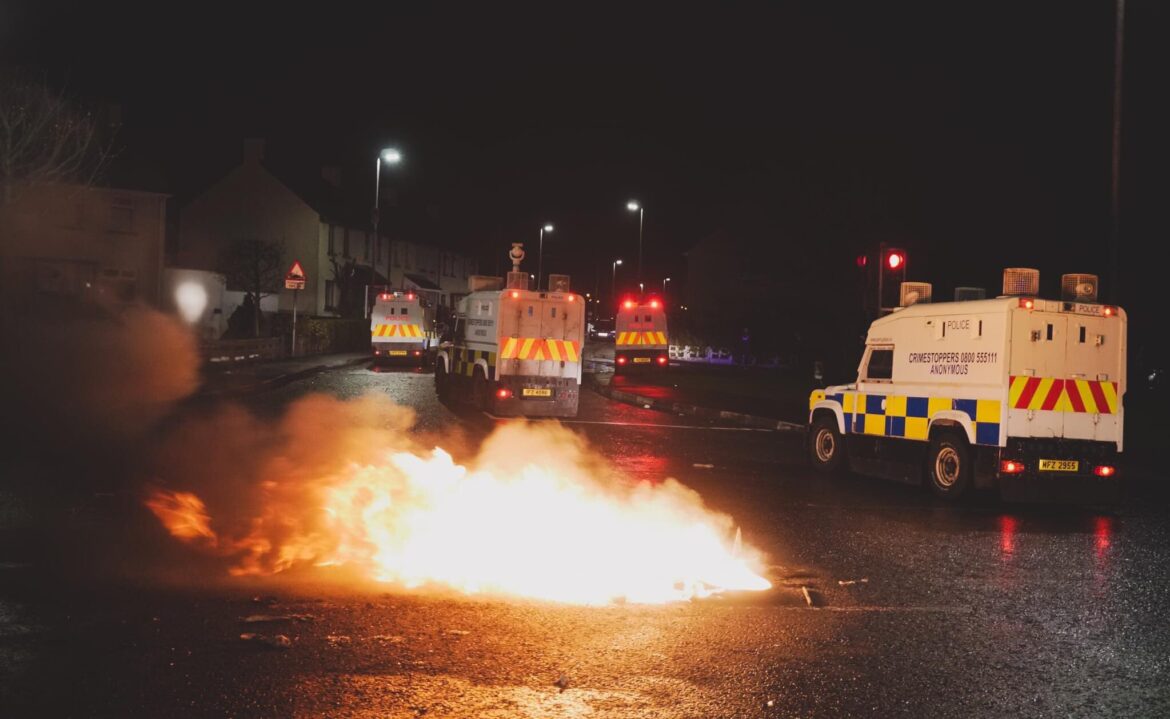
Violence in Derry on Easter Monday night
The financial support was announced by the Department of Justice, with £10 million also ring-fenced over the next three years as part of the Communities in Transition project.
The announcement of support directed into communities impacted by paramilitary activity comes just a few weeks after large-scale violent disorder took place in Derry, Belfast and Carrickfergus.
The Justice Minister Naomi Long said the funding was a way of ensuring young people and their families in those areas are not “drawn into a new generational cycle of paramilitarism, violence and crime”.
“People have had to live with paramilitary control, violence, threats and exploitation for far too long. Life is hard enough without this,” she added.
“Families, communities and businesses are all desperate to return to normal after Covid-19 and the last thing they need is the negative influence of paramilitary gangs seeking to exert control, often for financial gain.
“Our focus, by extending and refocusing the Executive’s Programme to address paramilitarism, criminality and organised crime is to stop harm, both in the here and now and for the longer term.
“Through the Programme we will cut off paramilitary supply chains, whether that’s paramilitary drugs that ruin people’s lives, money-lending that leads to misery or the violence that leaves vulnerable kids shot and maimed in the street.
“There should never be any place for this and as a society, it’s so important we support the people who every day stop another generation being scarred in this way.”
While community groups specialising in supporting young people and local communities will receive part of the £13 million over the course of the year, the Paramilitary Crime Task Force will also be supported, according to the department.
Welcoming the news, the outgoing First Minister Arlene Foster said: “I am pleased that proposals have been approved to ensure the continued delivery of the Tackling Paramilitary Activity, Criminality and Organised Crime Programme.
“This is one of the Executive’s key strategies and it recognises that there is no single answer to dealing with issues that lead to coercive control and instead a number of approaches need to be taken together.”
The deputy First Minister Michelle O’Neill added: “Those who live and work within our communities will continue to be a key partner in the Executive’s approach to moving society forward.
“We recognise the important role which a strong, resilient voluntary and community sector has in supporting those who are most vulnerable to coercive control within our communities and we reaffirm our commitment to supporting communities with this work.”
Tags:





